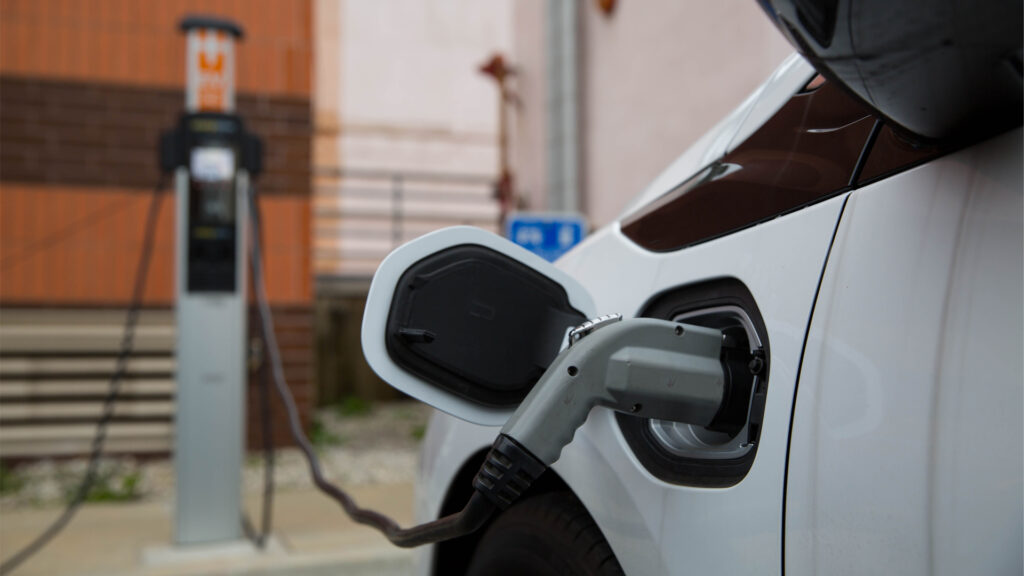By Ali DySard, Environmental Defense Fund
Despite decades of Big Oil lobbying against electric vehicles, consumers across the U.S. are embracing sustainable and affordable transportation at a compelling rate. As of June 2023, Florida had the second-highest adoption rate in the country with EVs representing more than 7% of new vehicles sold. Yet some myths and misconceptions persist, and Florida residents deserve to know the facts to make informed decisions.
Fact: Consumers save thousands on fuel and maintenance costs by purchasing EVs
A March 2024 Report found that an electric vehicle owner could save up to $10,581 in the first seven years of ownership compared to gas-powered vehicles by avoiding maintenance and fuel costs even after taxes and fees, and including resale values.
A major driver of cost savings is that electricity is cheaper than gas. Fuel costs for EVs are approximately 60% lower than those for gas-powered cars, and there’s no need for oil changes. With fewer moving parts, there are fewer breakdowns and costly repairs. Since transportation costs averaged 16% of income for U.S. households in 2020, this presents a significant opportunity for helping families make ends meet.
Fact: Most EVs can get you from Tampa to Miami on a single charge, and some to Key West!
While most of us drive under 40 miles a day, even in rural areas, for activities like commuting to work or running errands, modern EVs offer the flexibility to travel 200 to 300 miles for longer trips, such as going to Disney or visiting Grandma’s house.

For example, a Tesla Model 3 has a 358-mile range while a much more affordable Nissan Leaf provides over 200 miles. Over the past decade, both average and top ranges of EVs have witnessed significant improvements, and some experts have predicted that we will hit 800 miles per charge in the next 10 years.
If you rent or decide not to charge at home, locating EV charging stations in the Sunshine State has become increasingly more convenient with the state currently hosting over 9,000 public charging ports and more on the way!
The Florida Department of Transportation’s Electric Vehicle Master Plan aims to boost charging infrastructure across our state, focusing on expanding charging stations, tackling utility regulations and enhancing emergency preparedness. The plan also pinpoints prime locations for charging stations along highways for driver convenience, with multiple stations separated by no more than 50 miles along highway corridors.
Fact: EVs are good for the environment and their batteries are recyclable
EVs offer significant environmental advantages over their gasoline counterparts. According to research from the International Council on Clean Transportation, EVs have a climate impact of about one-third that of combustion engine vehicles.
Contrary to popular belief, the daily usage of a vehicle, not the manufacturing, poses the greatest environmental burden. Unlike gas vehicles emitting 20 pounds of CO2 per gallon, EVs eliminate daily fossil fuel reliance, reducing their environmental impact.
While mining for battery materials, such as cobalt, poses initial ecological concerns, it’s essential to consider the broader context and full life cycle. Battery recycling reduces reliance on critical minerals, and with the battery material market high, companies such as South Carolina’s Redwood Materials are popping up across the country. Recycling at facilities like Redwood Materials recovers 95% to 98% of critical minerals, promoting sustainability and minimizing future mining needs. This shift not only reduces mineral dependence but also creates domestic jobs and supports a circular economy, contrasting with fossil fuel consumption.
Additionally, manufacturers are moving away from using cobalt in their batteries, preferring alternatives such as lithium iron phosphate, which offer more cost-effective and winter-friendly solutions.
Fact: EVs boast superior safety features
Simpler mechanical designs, lower centers of gravity and advanced driver assistance systems work collectively to reduce the risk of accidents, mitigate the severity of collisions and contribute to improved overall safety.
Research found 26% less frequent non-crash fires for EVs compared to traditional gas-powered vehicles. Analysis of data from the National Transportation Safety Board revealed that for every 100,000 vehicles sold, gas vehicles experienced approximately 1,500 fires while EVs saw 25 fires for every 100,000 sold. EV manufacturers and organizations like the National Fire Protection Association offer specialized training and resources tailored to ensure emergency responders can safely address any rare fire incidents.
Fact: Florida’s electric grid is up for the task

EVs don’t use any more electricity than your common air conditioner unit. According to Consumer Reports, accommodating the increasing electricity demand from passenger EVs needs only a 1% yearly expansion in electricity production, markedly lower than the historical 3.2% average annual growth rate in electricity generation over the last 70 years!
The vast majority of EVs charge overnight when there’s spare grid capacity, enhancing grid flexibility and resilience, and ratepayers get bang for their buck using the capacity utilities have already invested in, so rates stabilize. EVs are batteries on wheels, after all, and we can tell them, with software, when to charge and with how much power.
EVs also act as backup power during blackouts and severe weather emergencies. When Hurricane Ian struck in 2022, a savvy Florida family used their Ford F-150 Lightning to power their home and cook dinner.
There has never been a better time to buy an EV. With a diverse range of makes, models and price points available, there’s an electric vehicle to suit every lifestyle and budget. By dispelling myths and embracing the undeniable benefits of electric vehicles, the road to a brighter, more sustainable future on Florida’s roads is fully charged.
Alexandra (Ali) DySard is a senior policy and program specialist for the Environmental Defense Fund.
If you are interested in submitting an opinion piece to The Invading Sea, email Editor Nathan Crabbe at ncrabbe@fau.edu. Sign up for The Invading Sea newsletter by visiting here.



